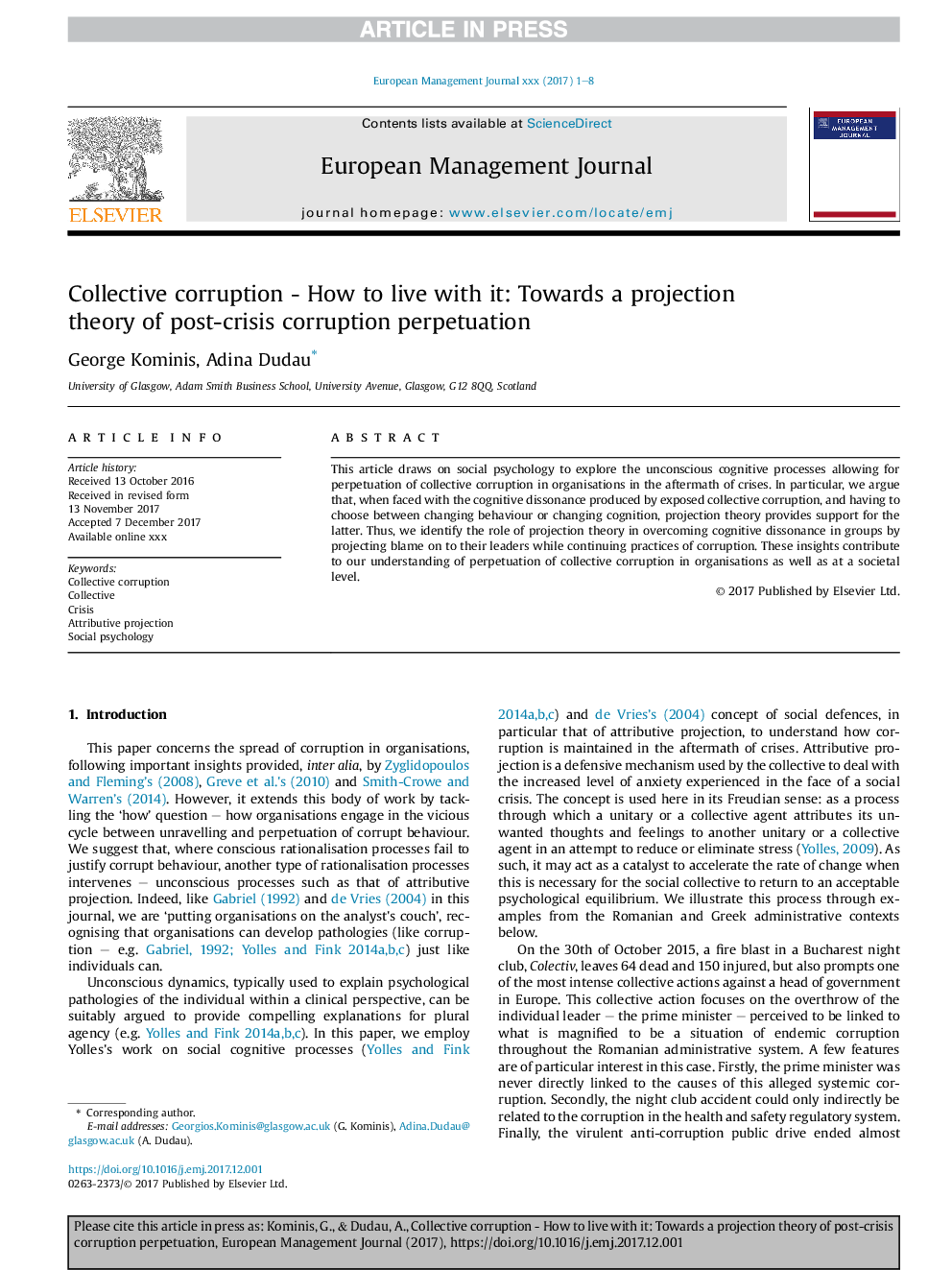| کد مقاله | کد نشریه | سال انتشار | مقاله انگلیسی | نسخه تمام متن |
|---|---|---|---|---|
| 7423572 | 1482718 | 2018 | 8 صفحه PDF | دانلود رایگان |
عنوان انگلیسی مقاله ISI
Collective corruption-How to live with it: Towards a projection theory of post-crisis corruption perpetuation
ترجمه فارسی عنوان
فساد جمعی - چگونگی زندگی با آن: به سمت تئوری طرح ریزی فساد پس از بحران
دانلود مقاله + سفارش ترجمه
دانلود مقاله ISI انگلیسی
رایگان برای ایرانیان
کلمات کلیدی
فساد مشترک، جمعی بحران، طرح بندی اختصاصی، روانشناسی اجتماعی،
ترجمه چکیده
این مقاله بر روانشناسی اجتماعی برای کشف فرآیندهای شناختی ناخودآگاه است که اجازه می دهد تا فداکاری جمعی در سازمان ها پس از بحران ادامه یابد. به طور خاص، ما استدلال می کنیم که در مواجهه با اختلافات شناختی ناشی از فساد مشترک در معرض و نیاز به انتخاب بین تغییر رفتار یا تغییر شناخت، تئوری طرح ریزی برای حمایت از آن حمایت می کند. بنابراین، نقش تئوری طرح ریزی در برانگیختن اختلافات شناختی در گروه ها را با طرح دادن سرزنش به رهبران آنها در حالی که اقدامات فساد را ادامه می دهند، شناسایی می کنیم. این بینش ها به درک ما از حفظ فساد جمعی در سازمان ها و نیز در سطح اجتماعی کمک می کند.
موضوعات مرتبط
علوم انسانی و اجتماعی
مدیریت، کسب و کار و حسابداری
کسب و کار و مدیریت بین المللی
چکیده انگلیسی
This article draws on social psychology to explore the unconscious cognitive processes allowing for perpetuation of collective corruption in organisations in the aftermath of crises. In particular, we argue that, when faced with the cognitive dissonance produced by exposed collective corruption, and having to choose between changing behaviour or changing cognition, projection theory provides support for the latter. Thus, we identify the role of projection theory in overcoming cognitive dissonance in groups by projecting blame on to their leaders while continuing practices of corruption. These insights contribute to our understanding of perpetuation of collective corruption in organisations as well as at a societal level.
ناشر
Database: Elsevier - ScienceDirect (ساینس دایرکت)
Journal: European Management Journal - Volume 36, Issue 2, April 2018, Pages 235-242
Journal: European Management Journal - Volume 36, Issue 2, April 2018, Pages 235-242
نویسندگان
George Kominis, Adina Dudau,
